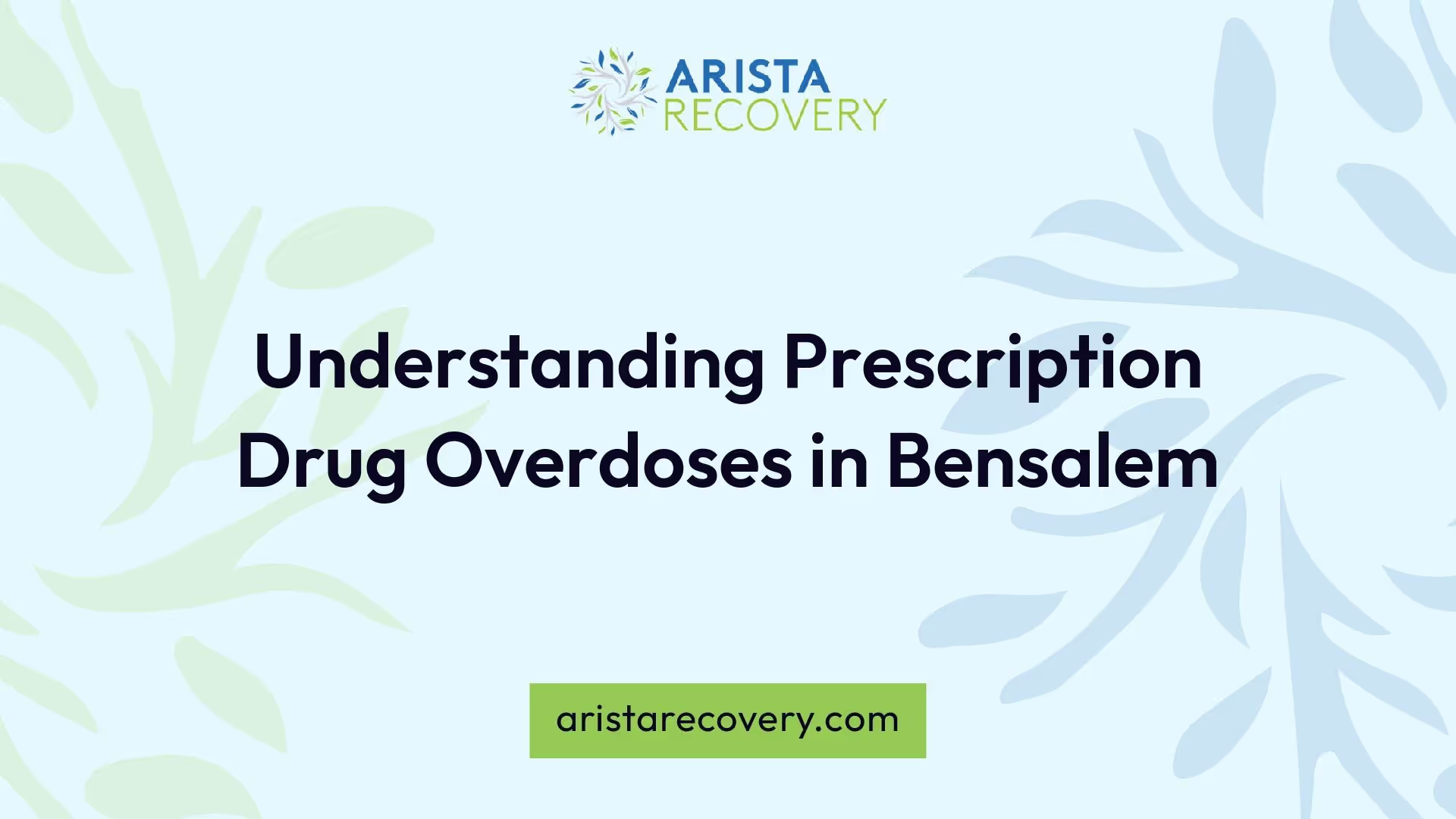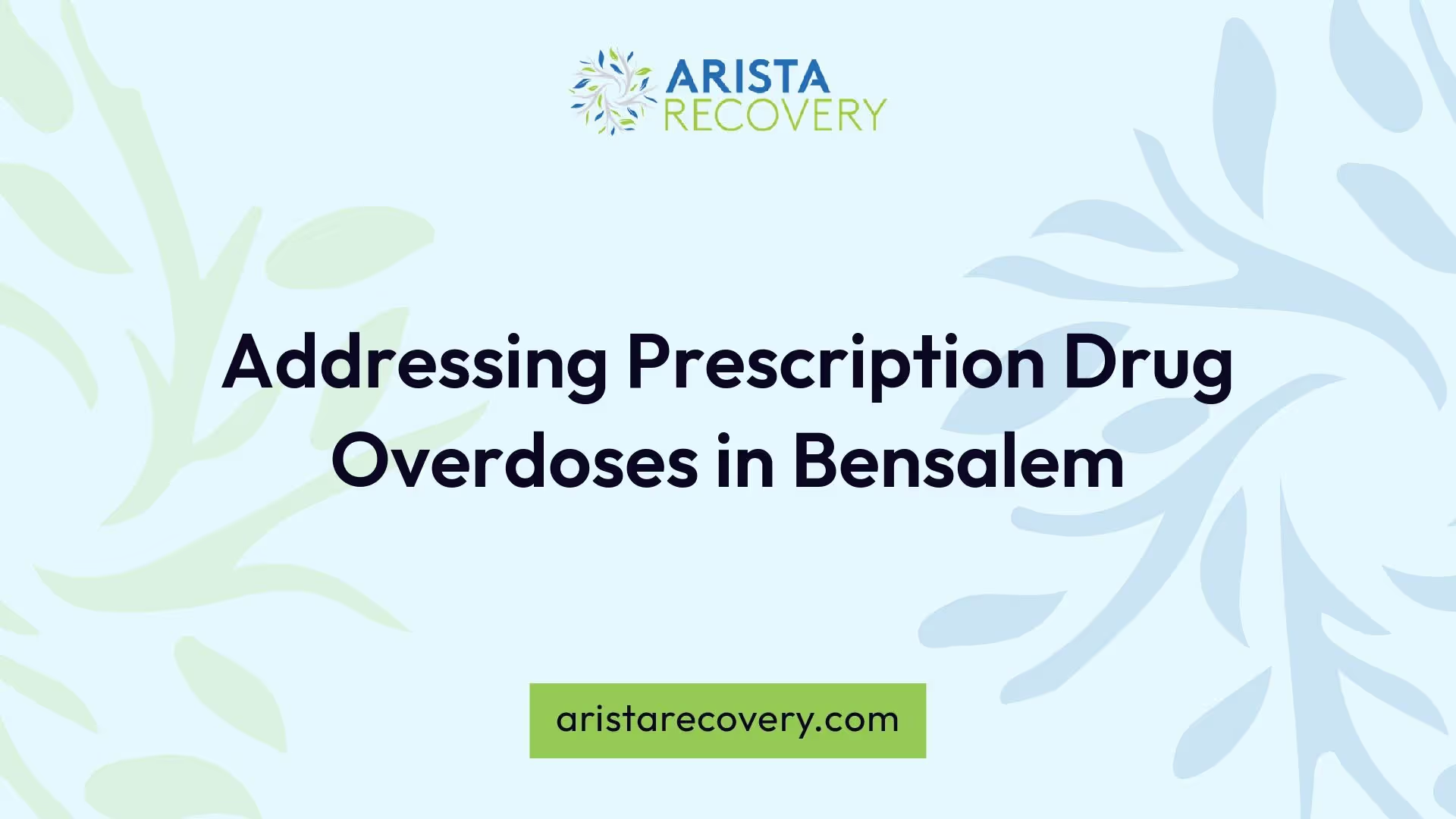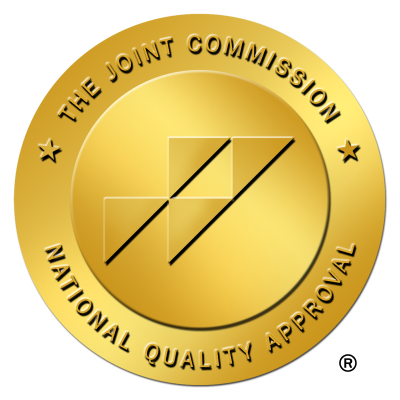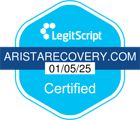Understanding Prescription Drug Overdoses in Bensalem

Understanding Prescription Drug Overdoses
In comprehending the impact of prescription drug overdoses in Bensalem, it is essential to delve into the trends in drug overdose deaths and the overall impact of prescription drugs on the community.

Trends in Drug Overdose Deaths
Data from NIDA revealed a significant fluctuation in drug overdose deaths involving benzodiazepines in Bensalem. The number of deaths steadily increased from 1,135 in 1999 to 11,537 in 2017, followed by a decline to 9,711 deaths in 2019. However, between 2019 and 2021, there was another rise to 12,499 deaths. Interestingly, in 2022, a decrease was recorded, with the number of drug overdose deaths related to benzodiazepines dropping to 10,964. This data highlights the fluctuating nature of drug overdose deaths in the region and emphasizes the need for ongoing monitoring and intervention strategies.
Impact of Prescription Drugs
The impact of prescription drugs on drug overdose deaths in Bensalem cannot be understated. According to NIDA, deaths related to benzodiazepines in Bensalem have experienced significant shifts over the years, indicating the evolving landscape of prescription drug misuse and overdose. It is crucial to address the root causes behind the misuse of prescription drugs, raise awareness about the potential dangers associated with these medications, and provide adequate support and resources to individuals struggling with addiction.
To effectively combat the challenges posed by prescription drug overdoses in Bensalem, a multifaceted approach that involves treatment programs, community partnerships, legislative efforts, and intervention strategies is necessary. By understanding the trends and impact of prescription drug overdoses, stakeholders and policymakers can develop targeted interventions to mitigate the adverse effects of drug misuse and work towards building a healthier and safer community.
Factors Contributing to Overdoses
The concerning rise in prescription drug overdoses in Bensalem can be attributed to a combination of socioeconomic influences and mental health factors. These elements interact in complex ways, exacerbating the prevalence of drug overdoses within the community.
Socioeconomic Influences
Socioeconomic factors, such as financial stress, lack of education, and access to healthcare, play a pivotal role in the escalation of prescription drug overdoses in Bensalem. Individuals without health insurance, those who have been incarcerated, or individuals living in poverty are particularly vulnerable to fatal opioid overdoses [1]. The lack of resources and support systems can push individuals towards substance abuse as a coping mechanism, further amplifying the risk of overdoses.
Factors contributing to the rise in prescription drug overdoses in Bensalem include the increase in the availability and accessibility of prescription drugs, as well as the overprescribing of opioids like oxycodone and hydrocodone [2].
Role of Mental Health
Alongside socioeconomic influences, mental health issues such as anxiety, depression, and stress also significantly contribute to the surge in prescription drug overdoses in Bensalem. These psychological factors can drive individuals towards substance misuse as a coping mechanism, leading to a dangerous cycle of addiction and overdose [3].
The accessibility and addictive nature of opioids, combined with the complexities of mental health struggles, create a challenging environment for individuals battling prescription drug abuse in Bensalem. Addressing these intertwined socioeconomic and psychological influences is crucial in developing effective prevention and treatment strategies to combat the epidemic of prescription drug overdoses in the community.
The rise in drug overdoses in Bensalem calls for a comprehensive approach that addresses both the underlying socioeconomic disparities and the mental health challenges faced by individuals struggling with addiction. By recognizing and targeting these interconnected factors, communities can work towards reducing the devastating impact of prescription drug overdoses and supporting those in need of assistance.
Addressing Prescription Drug Overdoses in Bensalem

In response to the escalating issue of prescription drug overdoses in Bensalem, various initiatives and programs have been implemented to tackle the challenges posed by addiction. Two key strategies that have been instrumental in addressing prescription drug overdoses are treatment and prevention programs, as well as fostering community partnerships.
Treatment and Prevention Programs
Bucks County, including Bensalem, has recognized the critical need for intervention and support for individuals struggling with prescription drug overdoses. Organizations such as TODAY, Inc. play a crucial role as assessment and treatment sites, tailoring services to priority groups like pregnant individuals, intravenous drug users, and those engaging in illicit substance use, as per Battling The Opioid Epidemic. These tailored programs ensure that individuals in urgent need receive the necessary care promptly.
Moreover, the availability of multiple resources and support systems in Bucks County emphasizes the community's dedication to addiction prevention, treatment, and recovery, as highlighted in Battling The Opioid Epidemic. Such comprehensive efforts aim to not only address the immediate consequences of prescription drug overdoses but also provide ongoing support for individuals on the path to recovery.
Community Partnerships
Recognizing the urgency of the prescription drug overdose crisis in Bensalem, local organizations, healthcare providers, and law enforcement agencies have joined forces to form community partnerships, as Social Recovery Center outlines. These collaborative endeavors underscore the importance of a united front in combating the epidemic and extending support to individuals impacted by addiction.
Through these partnerships, a synergy of efforts is created, enabling a more coordinated and holistic approach to addressing prescription drug overdoses. By bringing together diverse stakeholders, including treatment facilities, advocacy groups, and governmental bodies, the community can leverage collective resources and expertise to instigate change and provide inclusive support mechanisms for those affected.
By focusing on both treatment and prevention programs and nurturing community partnerships, Bensalem is actively confronting the challenges of prescription drug overdoses with a comprehensive and united front. These initiatives underscore the community's commitment to addressing addiction issues and fostering a supportive environment for individuals seeking help and healing.
Legislation and Initiatives
When it comes to combating the epidemic of prescription drug overdoses in Bensalem, legislative efforts play a crucial role in shaping policies and initiatives to address this pressing issue. Additionally, community awareness campaigns are instrumental in educating the public and reducing the stigma associated with addiction and overdose. Let's explore the legislative efforts and community awareness campaigns that are making a difference in the fight against prescription drug overdoses.
Legislative Efforts
Rep. Brian Fitzpatrick has been at the forefront of legislative efforts aimed at tackling prescription drug abuse, particularly focusing on the opioid epidemic and drug trafficking related to prescription drugs [4]. Through sponsoring various bills and leading bipartisan initiatives, Rep. Fitzpatrick has demonstrated a consistent commitment to addressing the complexities of prescription drug misuse and its detrimental effects.
Legislative efforts encompass a wide range of strategies, including implementing stricter regulations on prescription drug distribution, enhancing monitoring systems to track opioid prescriptions, and increasing access to addiction treatment services. These efforts aim to curb the availability of prescription drugs for non-medical purposes and reduce the incidence of overdoses in communities like Bensalem.
Community Awareness Campaigns
"Change the Script" is an exemplary statewide public awareness campaign in Connecticut designed to combat prescription drug and opioid misuse by raising awareness of the risks associated with these substances and promoting life-saving measures such as naloxone and addiction treatment [5]. By increasing public knowledge about the dangers of opioid misuse and reducing the stigma surrounding addiction, this campaign seeks to empower individuals to make informed decisions about their health and well-being.
In the Bensalem community, a proactive approach has been taken to address the escalating problem of prescription drug overdoses. Various initiatives, including intervention programs, expanded treatment options, and community-led education and awareness efforts, have been implemented to combat this growing epidemic [2]. By fostering collaboration between stakeholders, these campaigns aim to engage the community in the fight against prescription drug overdoses and provide support to individuals struggling with addiction.
As legislative efforts and community awareness campaigns continue to gain momentum, the collective impact of these initiatives is felt in the ongoing battle against prescription drug overdoses in Bensalem. By combining policy changes with public education and community engagement, strides are being made to address the multifaceted challenges posed by addiction and overdose, paving the way for a healthier and safer future for all residents.
Data and Reporting
In the realm of understanding prescription drug overdoses in Bensalem, it is essential to scrutinize the timeliness and accuracy of data and reports to make informed decisions regarding prevention strategies and interventions.
Timeliness of Data
The timeliness of data related to drug overdose deaths is crucial for the swift implementation of effective interventions. According to the CDC, the lag time for drug overdose deaths in the National Vital Statistics System (NVSS) database has been historically longer compared to other causes of death. However, recent improvements have narrowed the lag time from 6 months to 4 months starting in February 2022.
The reduction in lag time has facilitated more timely reporting of drug overdose data, enabling stakeholders to monitor trends and implement preventive measures promptly. This change aims to address reporting delays and provide a more current and accurate representation of the prevailing situation relating to prescription drug overdoses in Bensalem.
Accuracy of Reports
Ensuring the accuracy of reports on prescription drug overdoses is paramount for developing targeted interventions and assessing the efficacy of existing programs. Estimates generated with both 6-month and 4-month lag times have shown minimal variations for national predicted drug overdose death counts, with differences ranging from less than 0.2% at the national level to an average of 0.1% at the state level, as per the CDC.
It is notable that adjustments in reporting have been made to enhance accuracy, particularly by accounting for reporting delays associated with the percentage of records labeled as 'pending investigation' in provisional data. These enhancements seek to provide a clearer and more precise portrayal of recent trends in prescription drug overdoses in Bensalem, shedding light on the evolving nature of this public health concern.
While slight discrepancies may exist between provisional and final data due to varying tabulation methods, the strive for accuracy remains a focal point. Final data, typically tabulated by state of residence and confined to U.S. residents, offer a detailed overview of the impact of prescription drug overdoses in Bensalem, aiding in the formulation of targeted interventions and policies.
By emphasizing the timeliness and accuracy of data and reports, stakeholders can leverage this vital information to address prescription drug overdoses in Bensalem effectively, contributing to a comprehensive strategy to combat this pressing public health issue.
Supporting Those Impacted
In the face of the escalating prescription drug overdose crisis in Bensalem, it is imperative to provide effective intervention strategies and ensure access to essential resources for individuals impacted by substance misuse.
Intervention Strategies
Given the alarming statistics provided by Social Recovery Center that highlight the rise in prescription drug overdose deaths, implementing targeted intervention strategies is crucial. These strategies may include:
Access to Resources
Ensuring access to comprehensive resources is essential in supporting those impacted by prescription drug overdoses in Bensalem. Resources that can make a significant difference include:
By implementing effective intervention strategies and ensuring access to vital resources, Bensalem can take significant steps towards addressing the prescription drug overdose crisis and supporting those affected by addiction. It is essential to prioritize the well-being and recovery of individuals impacted by substance misuse through a holistic and compassionate approach.
References
[2]:
[3]:
[4]:
[5]:


